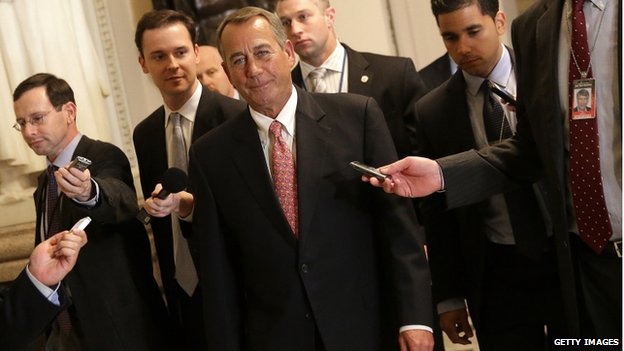House of Representatives passes $1.1 trillion budget bill
Narrowly Avoids Another Govt Shutdown
December 11, 2014
In last month’s elections, Republicans across the country gained control of both the House of Representatives and the Senate. And now the House has narrowly avoided a government shutdown like that of 2013. The deadline was today, Thursday, December 7, at midnight.
The bill was a surprisingly hard sell, both to Republicans and to Democrats. It was a “bipartisan problem.” Nancy Pelosi, the House Democratic leader, led the opposition to the measure. Democrats who sided with Pelosi disliked provisions of the bill that weakened campaign finance regulations and limited Wall Street. Moreover, conservative Republicans took issue with the bill because it did nothing to combat Obama’s executive action on immigration.
This fiscal measure proposed by the Republicans eventually passed by 219 votes to 206, after much convincing of the Democrats. President Obama himself stepped in and urged Democrats to support the bill. In a show of bipartisan cooperation, 57 Democrats joined 162 Republicans to pass the measure in hopes to gain leverage for future spending budgets. John Boehner, the Republican House leader and Speaker of the House of Representatives, said: “Thank you and Merry Christmas.”
This crucial, 1600 page bill will fund the majority of the government through September 2015 at the same levels that were negotiated last December. Notable provisions include only funding the Department of Homeland Security through February, cuts in the budgets of the EPA and the US tax agency, increases in the budget for Wall Street regulation agencies, and increasing the amount an individual person can contribute to a national political party from $32,400 to $324,000. Added last minute, the bill also includes emergency funding requested by President Barack Obama. These emergency funds will go to fight Ebola in West Africa and US air strikes against Islamic State in Iraq and Levant (ISIL).
Impending crisis has been averted. But it’s not over yet. The bill is to be sent to the Senate, who has agreed to a two-day extension of current funding levels to give itself time to approve the House bill. The president then has to sign the bill into law.



































